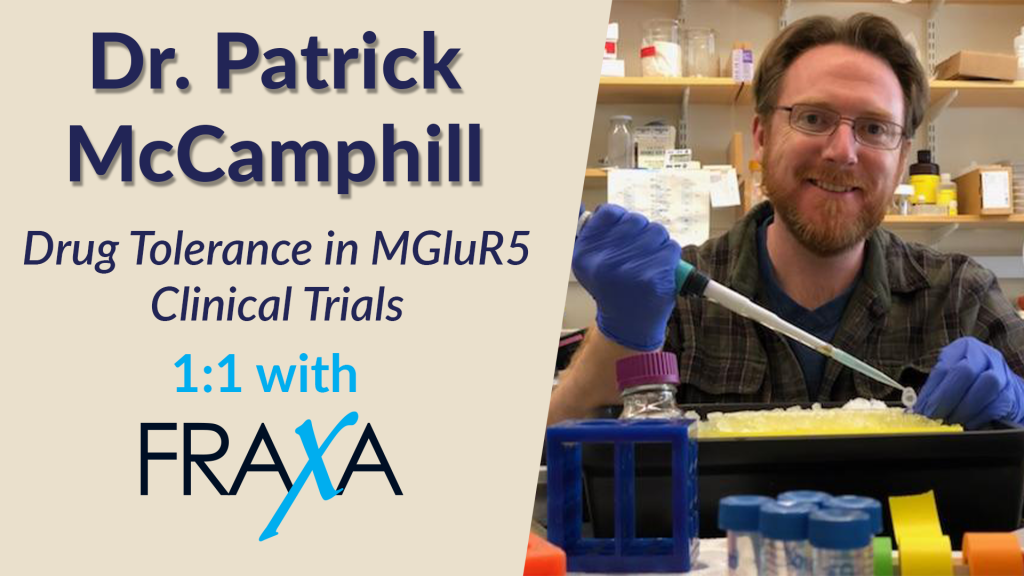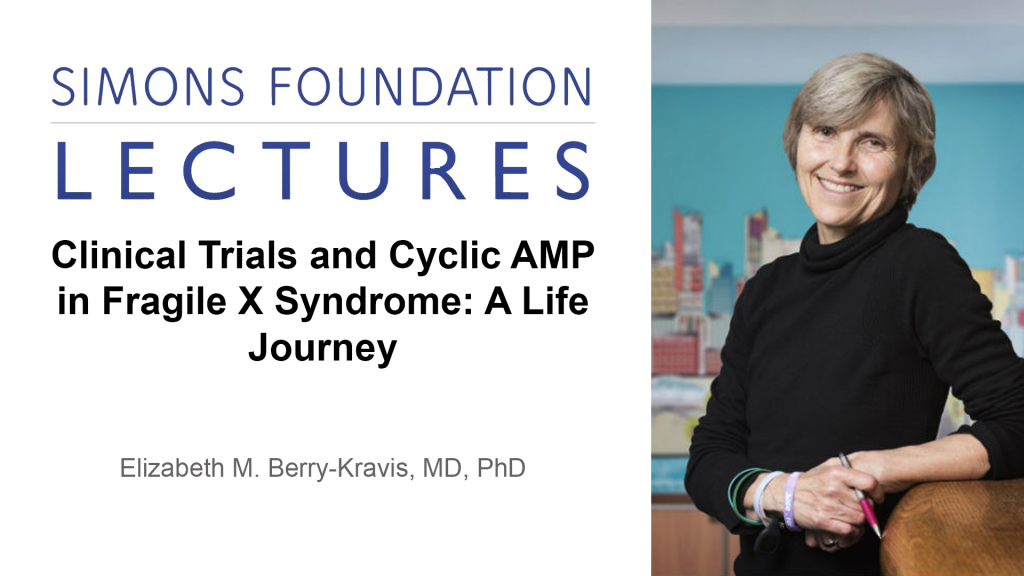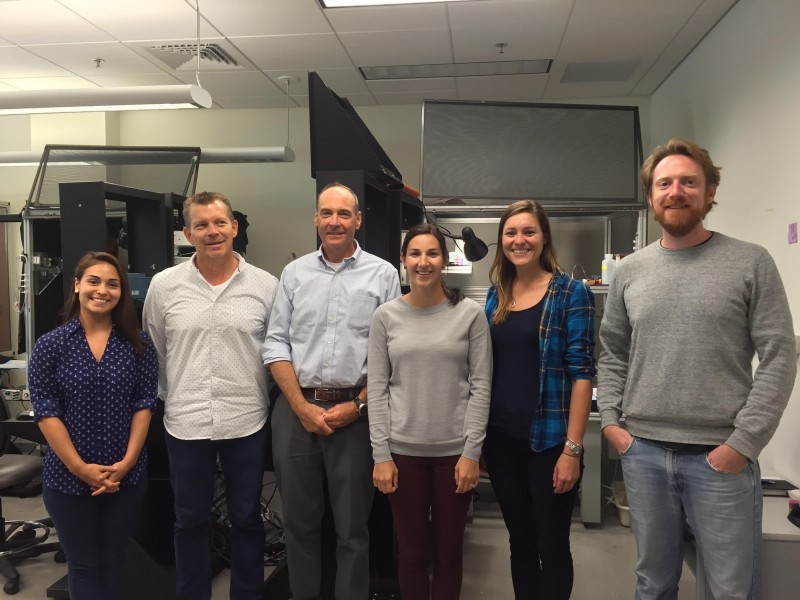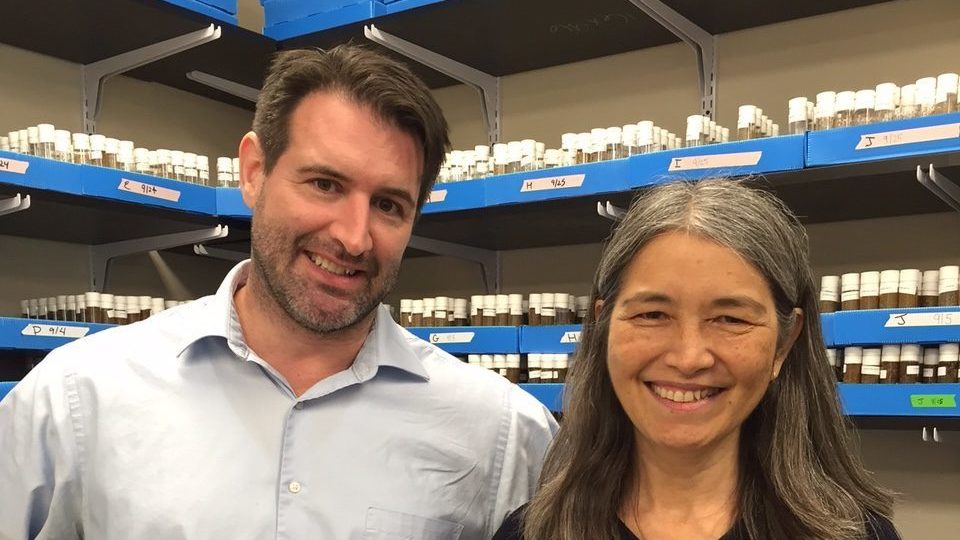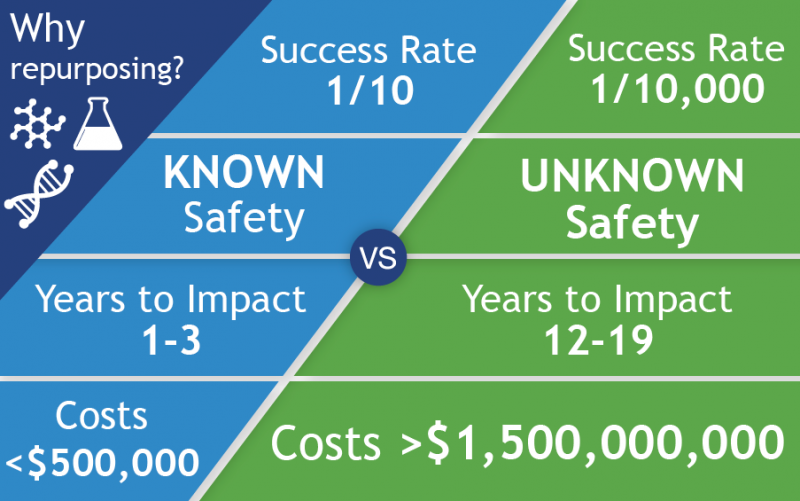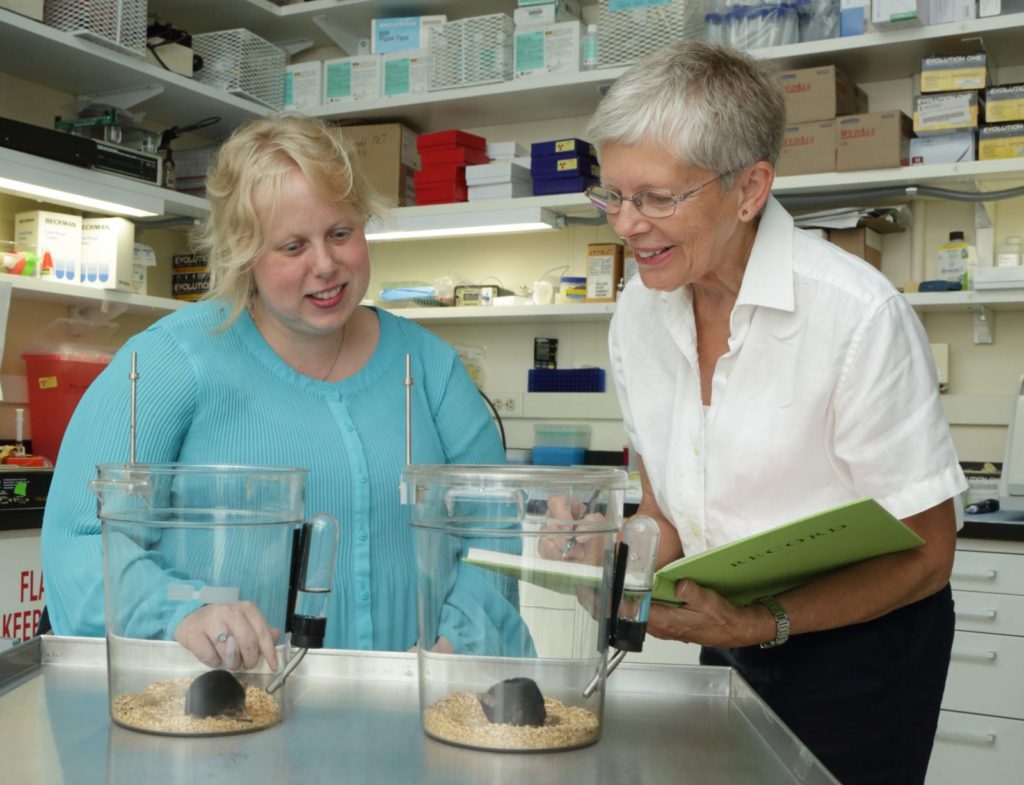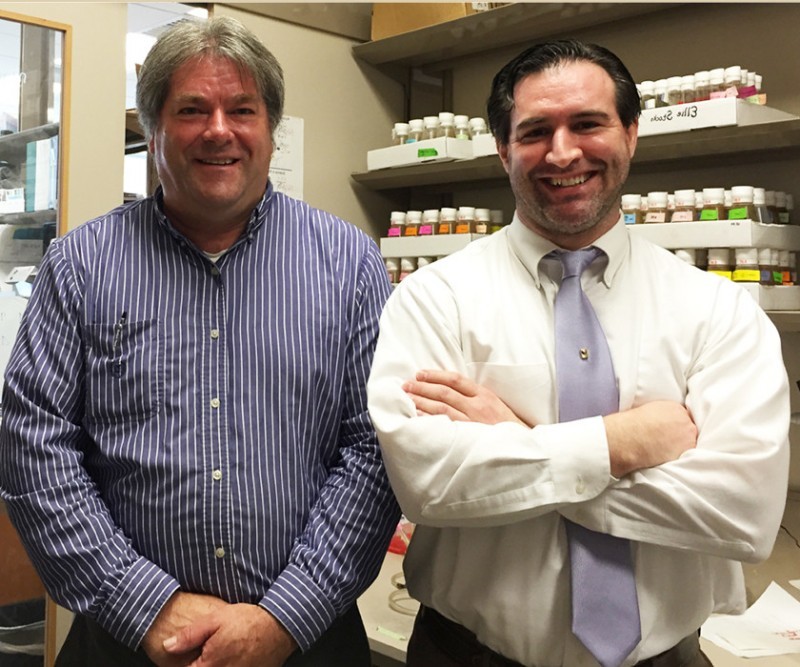Drug Tolerance in MGluR5 Clinical Trials – Dr Patrick McCamphill 1:1 with FRAXA
We have long suspected that the clinical trials of mGluR5 blockers from Novartis and Roche failed because the drug triggered tolerance, losing effect over time. With a $90,000 grant from FRAXA, Dr. Patrick McCamphill, a Postdoctoral Fellow in the MIT lab of Dr. Mark Bear, is investigating. He does indeed find tolerance, and now he is looking for ways to overcome it.
Clinical Trials and Cyclic AMP in Fragile X Syndrome: A Life Journey
In November 2020, a phase II clinical trial reported extremely successful results. This clinical trial of a PDE4D inhibitor from Tetra Pharmaceuticals was conducted by Dr. Elizabeth Berry-Kravis at Rush University Medical Center and funded by FRAXA Research Foundation. In this Simons Foundation lecture, Elizabeth Berry-Kravis traces 30 years of Fragile X research, from identifying its cause, through finding dozens of treatment targets, through a series of disappointing clinical trials.
Scientists Find a New Way to Reverse Symptoms of Fragile X
FRAXA Investigator and MIT Professor Mark Bear and his colleagues have identified a valuable new target for Fragile X therapeutics: GSK3 alpha. Several FRAXA research teams previously identified GSK3 beta as a treatment target for Fragile X. The catch is that, so far, GSK3 beta inhibitors have proven too toxic for regular use. Dr. Bear’s new discovery opens up the possibility of developing more selective compounds with less toxicity and fewer side effects. Interestingly, lithium inhibits both GSK3 versions – alpha and beta.
Healx Raises $56M to use AI to Find Treatments for Fragile X & Other Rare Diseases
Healx has secured $56M in new financing to build a clinical-stage portfolio for rare diseases, including treatments for Fragile X syndrome, and to launch a global Rare Treatment Accelerator program. Where the traditional drug discovery model takes more than a decade and can run into the billions of dollars, Healx’s AI-driven approach makes the process faster, more efficient and cost-effective.
Screening 2,320 FDA-Approved Drugs for Potential Treatment of Fragile X
FRAXA funded a screen of 2,320 FDA-approved compounds in the Fragile X fly model to identify hits that improve memory and social behavior for advanced testing.
Pharmacological Tolerance in the Treatment of Fragile X Syndrome
FRAXA funded MIT work to probe tolerance to key Fragile X drugs, including mGluR5 inhibitors and arbaclofen, and to identify ways to sustain long-term treatment benefits.
FRAXA Wins Award for Drug Repurposing
Cures Within Reach, the leading global nonprofit focused on repurposing research as a fast track to saving patient lives, has awarded FRAXA Research Foundation the 2017 Golan Christie Taglia Patient Impact Philanthropy Award for efforts to find treatments for the rare disease Fragile X syndrome.
NIH Investigator Carolyn Beebe Smith, PhD, Looks to Improve Sleep in Fragile X Syndrome
Our sons with Fragile X Syndrome typically go to bed early and rise early. Sometimes they jump on us while we are sleeping at 3 a.m., excited to start their day. For heaven’s sake, why? The answer may come from Carolyn Beebe Smith, PhD, senior investigator, Section on Neuroadaptation and Protein Metabolism, National Institute of Mental Health, National Institutes of Health, Bethesda, Maryland. She is studying why children, in particularly boys, with FXS have problems sleeping.
Fruit Flies to Model and Test Fragile X Treatments
Boosting cAMP signaling restores memory and fixes brain-signaling defects in Fragile X models, suggesting diabetes drugs like metformin may help.
Clinical Trials Outcome Measures
There is a critical need for reliable biomarkers and clinical outcome measures for Fragile X syndrome. Treatment trials depend on this.
Why Did Fragile X Clinical Trials of mGluR Antagonists Fail?
by Michael Tranfaglia, MD. In my opinion, the Fragile X clinical trials of AFQ056 sponsored by Novartis failed because of a dose range that was inadequate for Fragile X, and because of the unexpected development of tolerance.
Molecular mechanisms: Enzyme blockers help Fragile X mice
Dr. Jope won the 2013 FRAXA Pioneer Award for showing that lithium and other GSK-3–blocking drugs can reverse cognitive deficits in Fragile X mice.
Glycogen Synthase Kinase-3 (GSK3), Lithium and Fragile X
Dr. Jope found that lithium (at usual therapeutic doses) and investigational GSK3 inhibitors can reverse a number of cognitive deficits in FMR1 knockout mice.
What Works, and What Doesn’t
Early on, no one knew which path would work. Now the results are clear, and they’re directing FRAXA toward the next major Fragile X treatment breakthrough.
Pilot Clinical Trial of Lithium in Fragile X Shows Promising Results
With $65K from FRAXA, Dr. Berry-Kravis at Rush University ran a pilot lithium trial in 15 Fragile X patients. Results published.
Small Molecule Modulators of Lithium for Treatment of Fragile X Syndrome
With a $219,500 FRAXA grant, Dr. Stephen Haggarty at Harvard/MIT used patient-derived stem cells to screen drugs targeting GSK3, aiming to enhance lithium therapy.
Developing Fragile X Treatments in Fruit Flies and Mice
FRAXA’s $380K grant supported Drs. McBride, Jongens, and Choi in validating Fragile X treatments in mice to prepare for trials. Findings published.
Social Deficits in Fragile X Syndrome: Do Gene-Gene Interactions Play a Role?
FRAXA’s $100K grant supported Drs. Jean Lauder and Sheryl Moy at UNC in exploring gene–gene interactions in Fragile X.
Pharmacologic Interventions in the Fmr1 KO Mouse
With $48.6K from FRAXA, Dr. Catherine Choi at Drexel studied Fragile X knockout mice to identify potential treatment targets.

